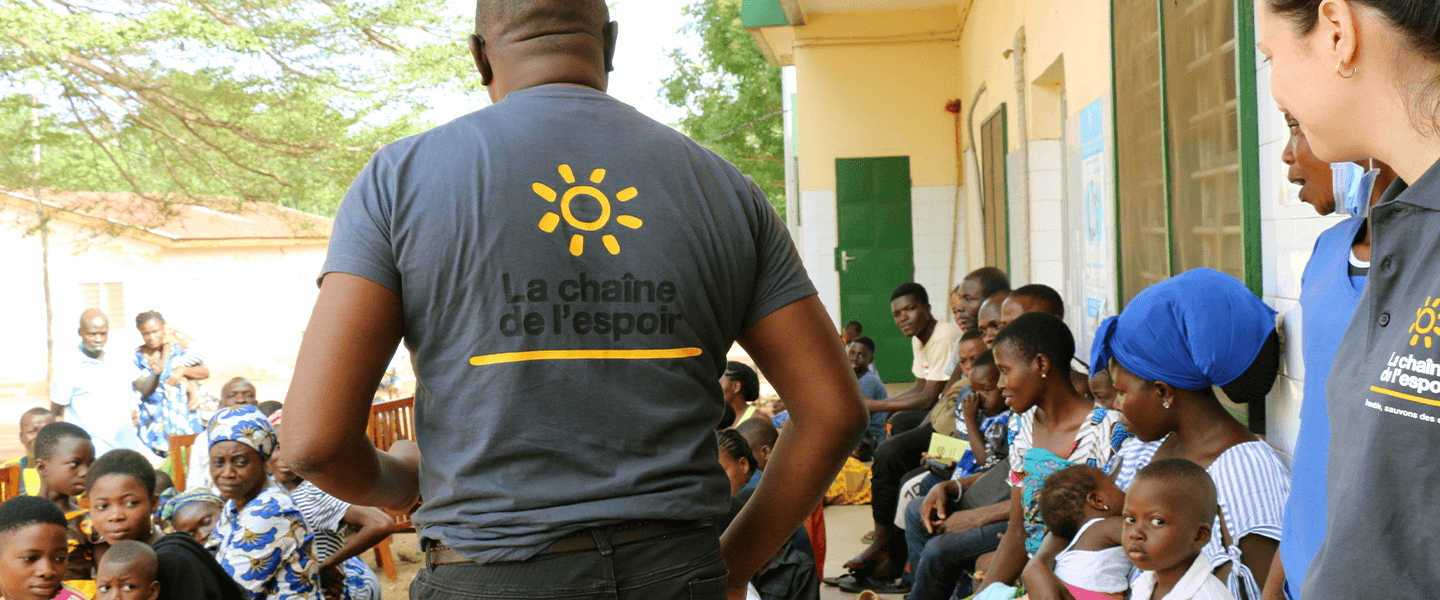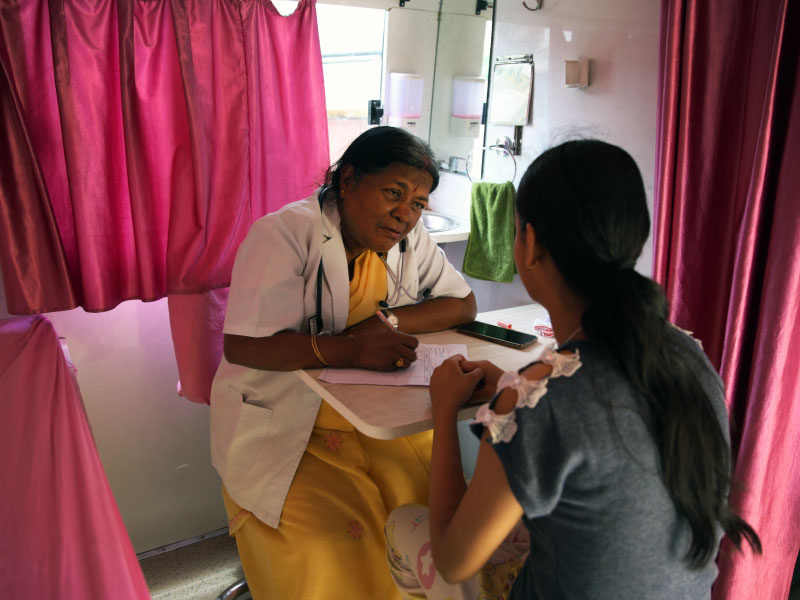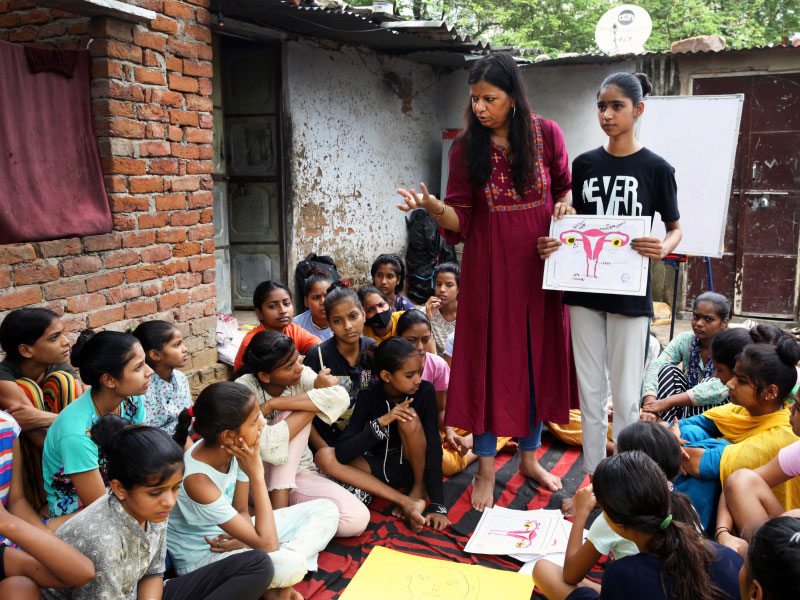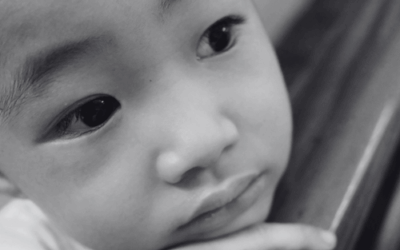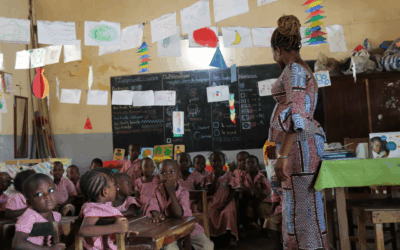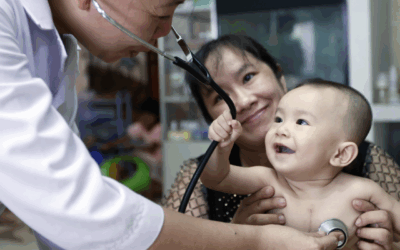JorldMenstrual Hygiene Day 2025
La Chaîne de l’Espoir is mobilizing to make menstruation an issue of dignity, through projects in Nepal, India and Togo, among the most marginalized communities.
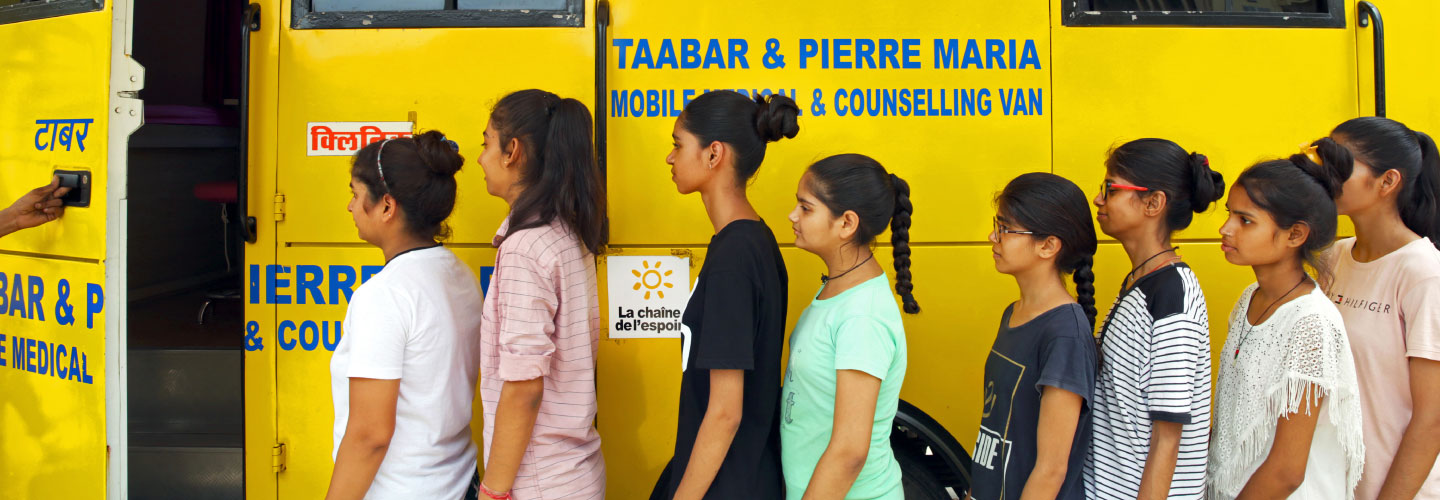
Supporting and educating: raising awareness in the slums of Jaipur
In Indiain the districts of Jaipur, two mobile clinics set up with our partner Taabar work in 26 shantytowns. They provide essential care for vulnerable children and offer special support for girls. E n effect, 8,184 gynaecological consultations were carried out via the dedicated unit in 2024while 450 awareness-raising sessions on health and hygiene – including menstrual hygiene – reached almost 6,000 beneficiaries.
On World Menstrual Hygiene Day, these actions take on a special resonance. In the shantytowns, menstruation often remains synonyms of shame. For many young girls, are associated with untreatedor untreated pain, a lack of information, and of repeated interruptions of theeur schooling. By creating adedicated and raising awareness, La Chaîne de l’Espoir is helping to bring about lasting changes in attitudes and practices.
Promoting access to menstrual hygiene for young girls in remote areas
In Nepal, La Chaîne de l’Espoir, in partnership with the local NGO Child Protection Centers and Services (CPCS), supports 37 school infirmaries in four rural and peri-urban districts. These facilities play a crucial role inimproving the health of children from vulnerable communities, often far from traditional health care centers. But over and above medical care, these infirmaries also play a key role in raising awareness of health and hygiene, particularly among young girls facing menstrual problems. Regular information sessions are organized with pupils, teachers and parents, toeducate communities about menstruation, its hygienic management, and the importance of a taboo-free approach to this still too-stigmatized subject.
“My health, my school”: a program committed to young girls’ menstrual health
In Africa, nearly 66% of girls are unaware of menstruation before their first period, with serious consequences for their health and schooling. On the occasion of World Menstrual Hygiene Day 2025, Valentin Aziagbe, Head of our school health program “Ma santé, mon école” (My health, my school) presented the actions carried out in Togo on France 24. This project takes concrete action through awareness-raising sessions, teacher training and theimprovement of school infrastructures to guarantee a safer, more inclusive environment for girls.
These interventions are essential to remove prejudices and ensure equal access to health and education. Find out more about World Menstrual Hygiene Day.
Photo credits: La Chaîne de l’Espoir / Cheena Kapoor

